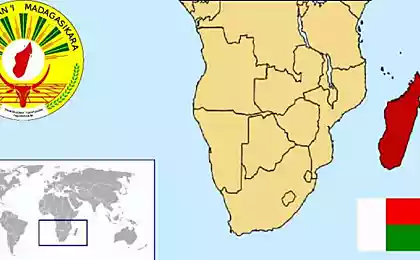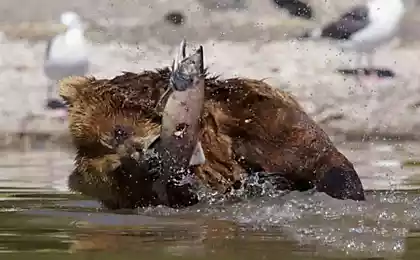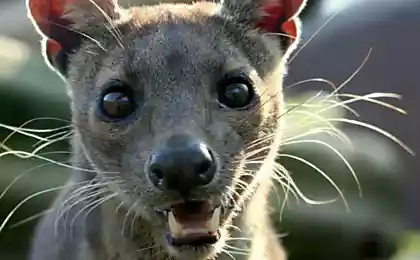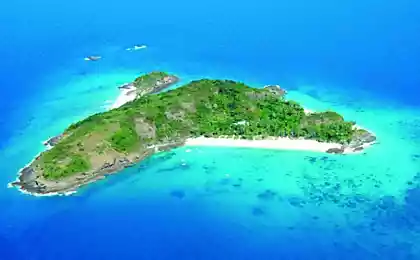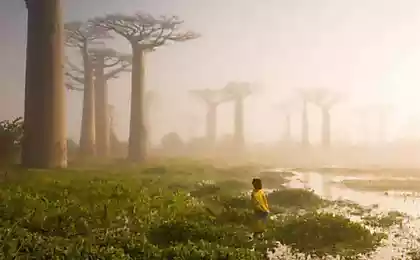1407
Animals - masters of mimicry
Wildlife photographer Alex Hyde took years of scientific training to learn how to find animals that do not really want to be found. Alex is not averse to more people look at this amazing ability of some animals to disguise.
Alex Hyde, worked as a teacher at the University of biological photos Nottingham, travels to the jungles of Madagascar, testing their knowledge in practice in the field of zoology.
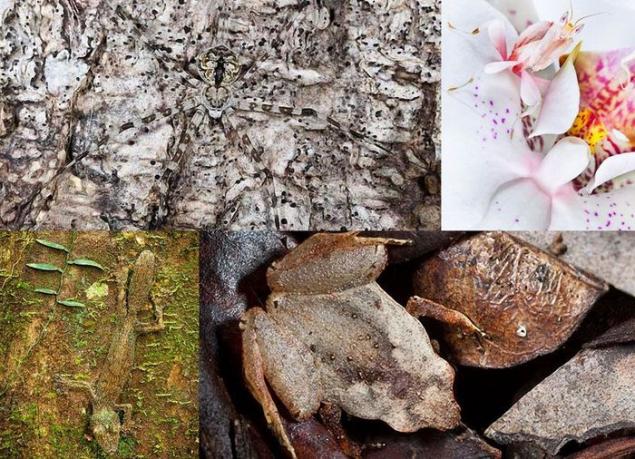
1. In this picture we see listohvostogo geckos hidden in the trunk of the tree, overgrown with ivy, in the jungle of the National Park on the Masoala peninsula, in the north-east of Madagascar.
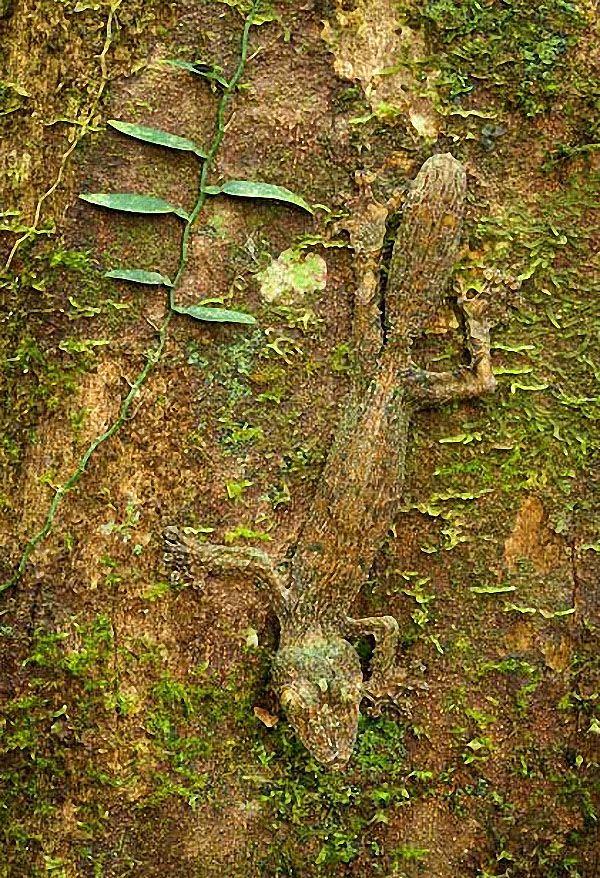
2. The spider with long legs disguised in the bark of a tree, waiting to ambush prey. Photo is also made in the national park Masoaly.
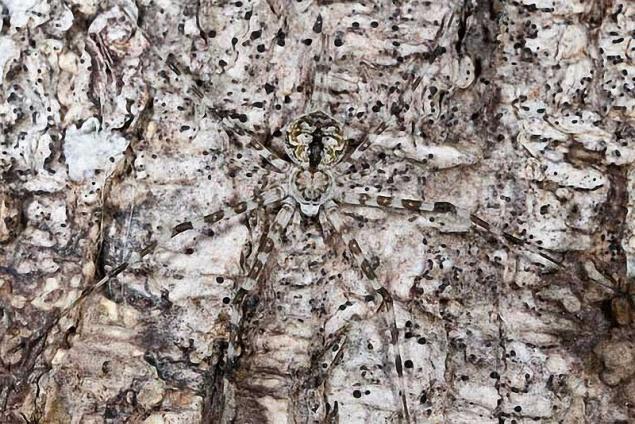
3. This frog from the tropical forests of the National Park Andasibe-Mantadia Madagascar. Alex Hyde said: "I never cease to be amazed at how they manage to cleverly disguise. To be able to take a picture of an animal, it is necessary to know precisely the places where it prefers to hide, at different times and under different conditions ».
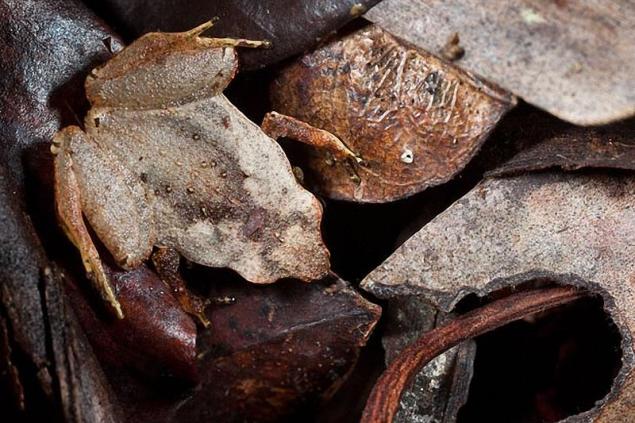
4. "Listohvosty geckos perfectly camouflaged in a tree trunk. And a striking resemblance to the bark is not only skin color geckos, but its texture. If they did not have the ability to hide so well, they have a long time ago would have caught predators, destroying the entire population ».
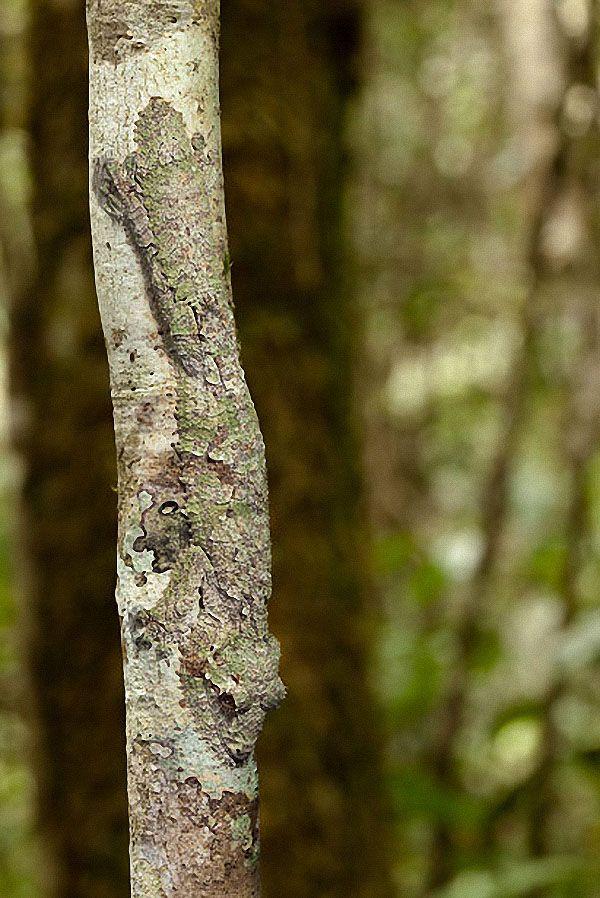
5. The struggle for survival is becoming more severe in proportion as the jungles of Madagascar are being cut down for timber production. While an island off the coast of Africa remained intact, it was covered with forests by about 90%. Now only 7%. This frog called Platepelis Grandis. As we can see, the medium of its habitat is the thick moss.
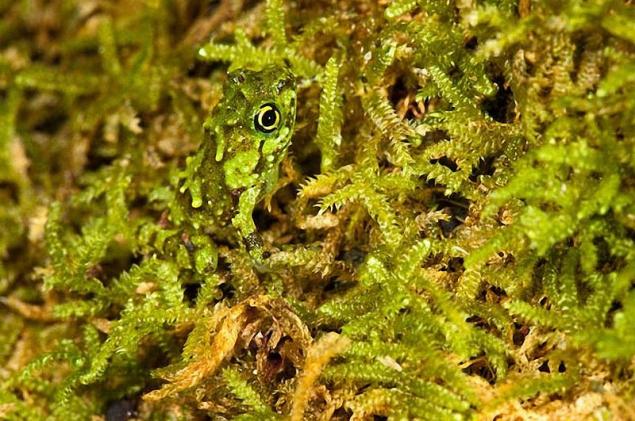
6. Over the past half-century Madagascar has lost most of its forests. Legally protected forest area is barely 2% of the total area of the island, and most of the jungle is still in danger. Penkohvosty chameleon disguised among the fallen leaves in the park peninsula Masaola.
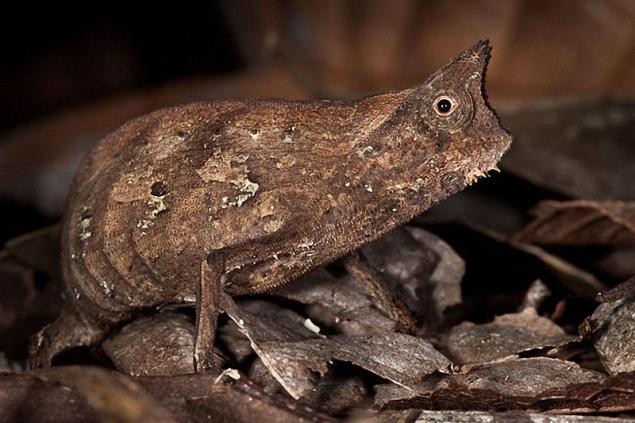
7. Most of Alex grabs his work in Britain, at the University of Nottingham. "Britain also has something to boast about when it comes to the history of natural history" - says Alex. Usual fish disguised as the rocky bottom of the pond on the island of Mull, Scotland.
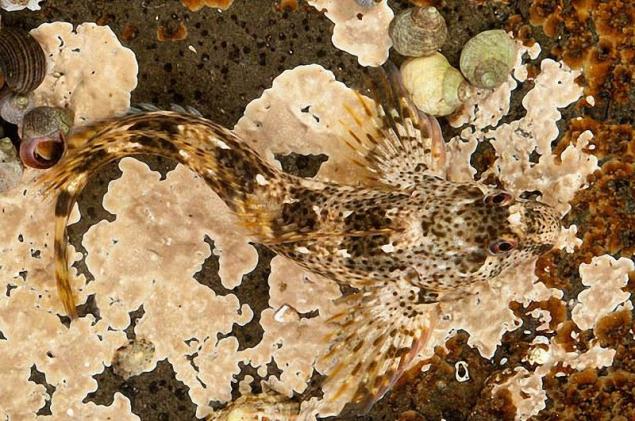
8. Malaysian orchideous mantis hiding in the flower waiting for some unlucky gnats.
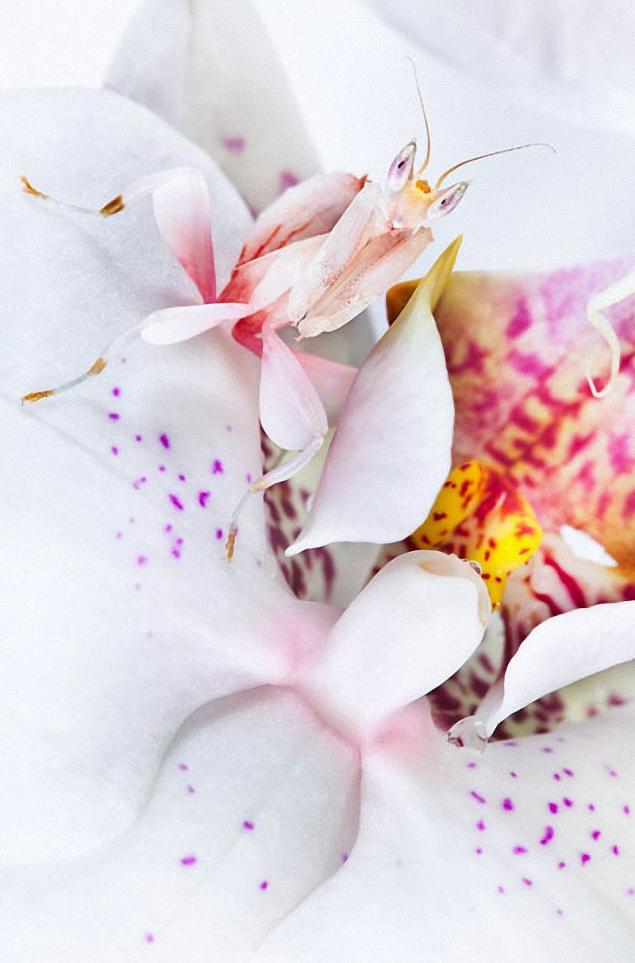
9. Striped listohvosty geckos sitting on dried palm leaves during night hunting.
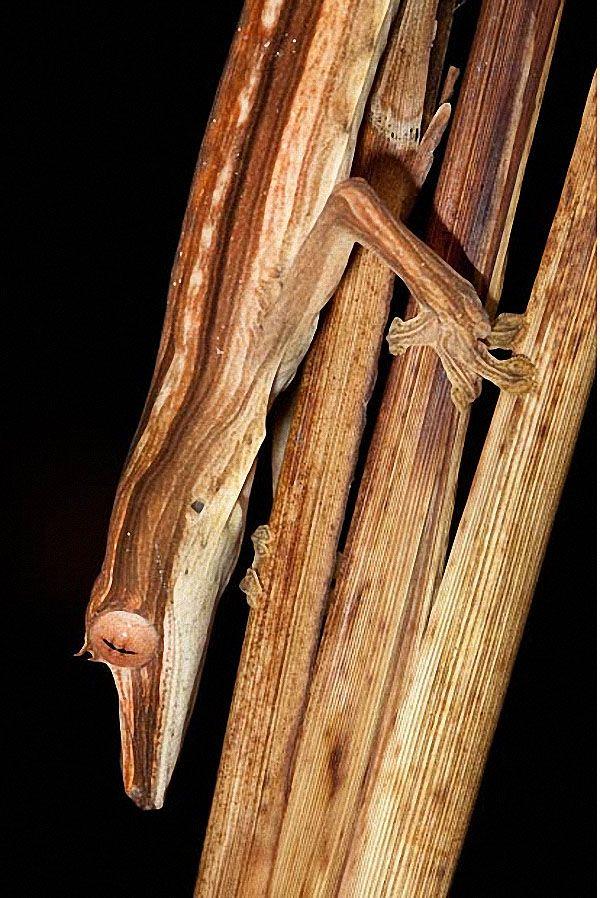
10. "If people from time to time looked into the grass underfoot, they would be surprised to know how many living creatures dwell there.
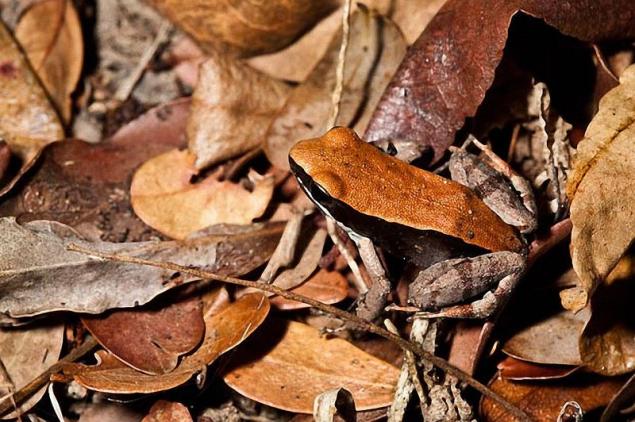
11. Marine scorpion can hardly be discerned against a background of rocky bottom off the coast of the island of Skye, Scotland.
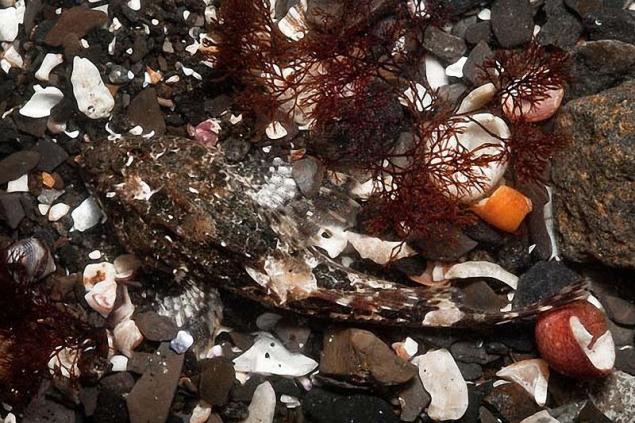
12. Another picture striped listohvostogo Madagascar geckos hunting at night.
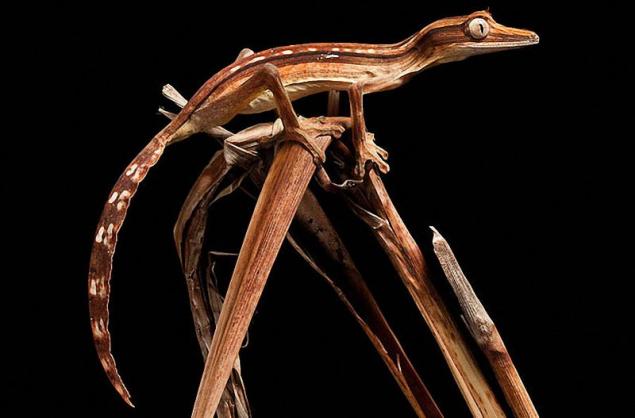
13. The female praying mantis violinist perfectly hidden in the background of dried leaves.
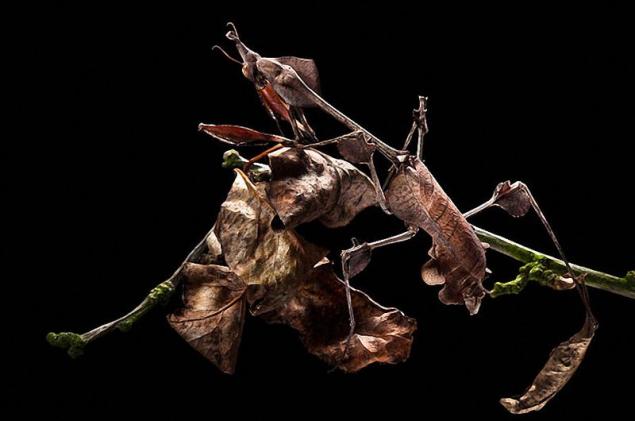
14. The Mole in the trunk of a birch in Debrishire, England.
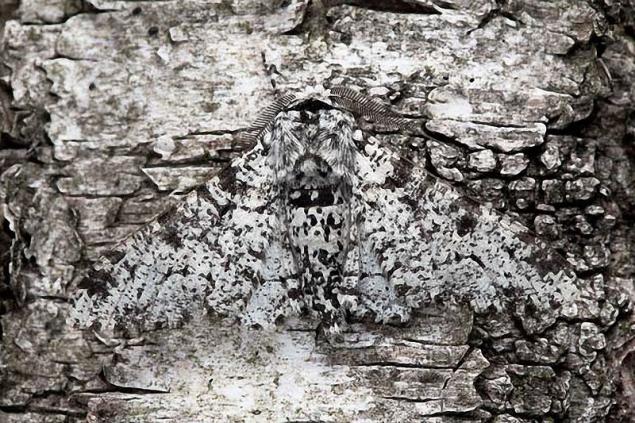
Source: bigpicture.ru
Alex Hyde, worked as a teacher at the University of biological photos Nottingham, travels to the jungles of Madagascar, testing their knowledge in practice in the field of zoology.

1. In this picture we see listohvostogo geckos hidden in the trunk of the tree, overgrown with ivy, in the jungle of the National Park on the Masoala peninsula, in the north-east of Madagascar.

2. The spider with long legs disguised in the bark of a tree, waiting to ambush prey. Photo is also made in the national park Masoaly.

3. This frog from the tropical forests of the National Park Andasibe-Mantadia Madagascar. Alex Hyde said: "I never cease to be amazed at how they manage to cleverly disguise. To be able to take a picture of an animal, it is necessary to know precisely the places where it prefers to hide, at different times and under different conditions ».

4. "Listohvosty geckos perfectly camouflaged in a tree trunk. And a striking resemblance to the bark is not only skin color geckos, but its texture. If they did not have the ability to hide so well, they have a long time ago would have caught predators, destroying the entire population ».

5. The struggle for survival is becoming more severe in proportion as the jungles of Madagascar are being cut down for timber production. While an island off the coast of Africa remained intact, it was covered with forests by about 90%. Now only 7%. This frog called Platepelis Grandis. As we can see, the medium of its habitat is the thick moss.

6. Over the past half-century Madagascar has lost most of its forests. Legally protected forest area is barely 2% of the total area of the island, and most of the jungle is still in danger. Penkohvosty chameleon disguised among the fallen leaves in the park peninsula Masaola.

7. Most of Alex grabs his work in Britain, at the University of Nottingham. "Britain also has something to boast about when it comes to the history of natural history" - says Alex. Usual fish disguised as the rocky bottom of the pond on the island of Mull, Scotland.

8. Malaysian orchideous mantis hiding in the flower waiting for some unlucky gnats.

9. Striped listohvosty geckos sitting on dried palm leaves during night hunting.

10. "If people from time to time looked into the grass underfoot, they would be surprised to know how many living creatures dwell there.

11. Marine scorpion can hardly be discerned against a background of rocky bottom off the coast of the island of Skye, Scotland.

12. Another picture striped listohvostogo Madagascar geckos hunting at night.

13. The female praying mantis violinist perfectly hidden in the background of dried leaves.

14. The Mole in the trunk of a birch in Debrishire, England.

Source: bigpicture.ru




